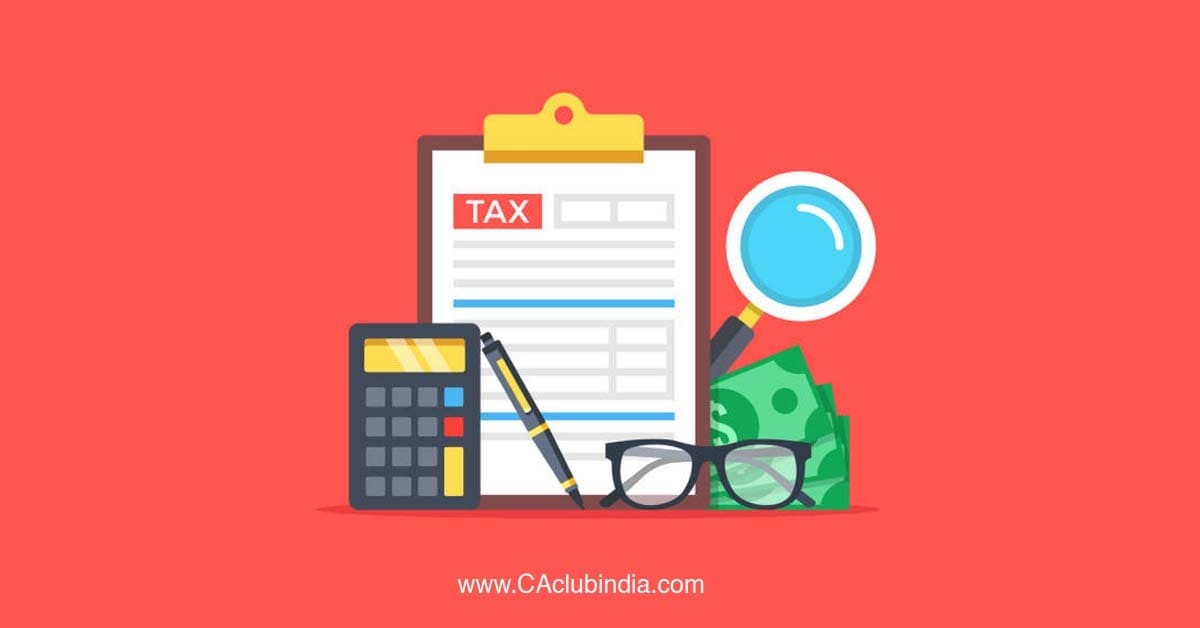YOU CAN SAVE YOUR TAXES BY USING VARIOUS EXEMPTIONS AND DEDUCTIONS PROVIDED BY THE GOVERNMENT UNDER VARIOUS PROVISIONS OF INCOME TAX ACT,1961.
Note: You have to save taxes not evade the same.
Here are some of the top options every taxpayer must explore in order to save some income tax: -
AVAIL MAXIMUM BENEFIT OF 80C [Rs. 1,50,000]
If you are planning to save income tax, then you must avail the maximum benefit under 80C (Rs 1.5 lakhs per annum, as of now). One can freely choose saving instruments of their choice, like people not willing to take financial risk may go for 5-year Tax saver FD, Life insurance policies or other investment products offering fixed returns. Those who don't shy from taking risks can invest in Mutual funds under ELSS categories. There is no difference in the performance of ELSS and a normal mutual fund, except for the fact that there is a lock-in period of 3 years in ELSS category funds.
NEVER EVER IGNORE 80CCD [Rs.50,000/- additional benefit along with Rs. 1,50,000/- in Section 80C]
One should also consider utilizing maximum limit under 80CCD (Rs 50k as of now) to save Rs 15000(if you are in 30% Tax Slab) by investing in NPS (National pension System) scheme or APY (Atal Pension Yojna). There is a myth that NPS gives very low returns as compared to other available products, which is absolutely wrong. You can compare the performance of all funds under this category and can choose the fund of your choice. 50% of your funds are deployed in these market-linked products and 50% in debt instruments like government bonds. This ratio is changed by fund manager every year and 100% of your funds parked in debt market till retirement. As assessee already saving 15,000 in tax so whatever you are earning is actually earning on 35,000, so your actual returns are much higher if you save under this category. However, the products under 80CCD are pension funds only, so there are some restrictions on withdrawal of funds, you must consider it before investing.

TRIPLE BENEFIT OF HOME LOAN
Owning a home offers the triple benefit of house rent saving, property appreciation in the long term and tax benefits. If you are staying on rental property, then your rental expense is going to increase every year, whereas your EMIs is almost fixed (if interest rates do not change) Finance minister Nirmala Sitharaman in her Budget 2021 has extended timeline for availing additional tax benefit of Rs 1.5 lakhs under section 80EEA.
UNDER 'HOUSING FOR ALL', THE GOVERNMENT IS GIVING TAX DEDUCTION BENEFITS OF UP TO RS 3.5 LAKHS (RS 2 LAKHS UNDER SECTION 24), WHICH CANNOT BE IGNORED.
Moreover, you can save tax under multiple sections as per following schedule if you buy residential property: -
|
Section |
Maximum Tax Benefits |
Tax saving component |
Conditions |
|
Section 24 |
Rs 2,00,000 |
Home Loan Interest |
Assessee or any family member should be living in that house, full interest can be claimed if house is on rent. |
|
Rs 1,50,000 |
Home Loan Interest |
|
|
|
80C |
Rs 1,50,000 |
Home Loan Principal |
Property should not be sold within 5 years of possession. |
So, if you claim all tax in all above components, you will be able to claim a maximum income tax deduction of Rs. 5.00 Lakhs as follows;
- Section 80C- Maximum Rs. 1,50,000/-
- Section 24(b) - Maximum Rs. 2,00,000/- (Self occupied property)
- Section 80EEA- Maximum Rs. 1,50,000/-
MOREOVER, LET'S TAKE A LOOK AT SUMMARY OF OTHER OPTIONS TO SAVE INCOME TAX
|
Section |
Description |
Annual |
|
80C |
Following are the instruments comes under it 2. Payment of tuition fee (max2kids) (Only Tuition Fees to Schools will be considered not coaching fess etc.). 3. Principal repayment of housing loan. |
|
|
80CCD |
Investment in National Pension System (NPS), Atal Pension Yojana (APY). |
50,000 |
|
|
Premium paid for medical insurance for self, spouse and children. |
25,000(50k if age is above 60) |
|
Premium paid for medical insurance for parents. (Note: if you have done any expenditure on treatment of your parents in previous year, then that expenses to the extent of Rs. 50,000/- will be available for deduction. If you have paid any Mediclaim premium in previous year then same will be deducted from Rs. 50,000). You can also claim Preventive Health care deduction |
25,000(50k if age is above 60) 5000/- p.a. |
|
|
80E |
Interest paid on education loan for self, spouse or children. Interest paid for a period of 8 years only. |
No Limits |
|
Interest for the first-time home owner. Home value should be <=50Lac and Loan value <=35 Lac. |
50,000 |
|
|
80G |
Donations to various govt. approved charities, social and govt. organizations. (50% amount can be claimed for some organization) |
Max 10% of gross annual income. |
|
80GG |
House rent paid, where individual not getting HRA and not owning any property. (If you are claiming HRA then this deduction is not available. This is available for persons not claiming HRA and engaged generally in business or profession). |
Rent paid minus 10% of total income, 25% of total income or 5000 /month whichever is lesser. |
|
24(b) |
|
|
DISCLAIMER: Please note that above write up is only for the knowledge of reader. The article has written by using latest amendments in respective legislations. The Author has not expressed his professional view and it is suggested that before acting on it please take advise of professional.








 CAclubindia
CAclubindia
